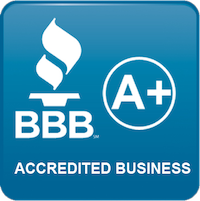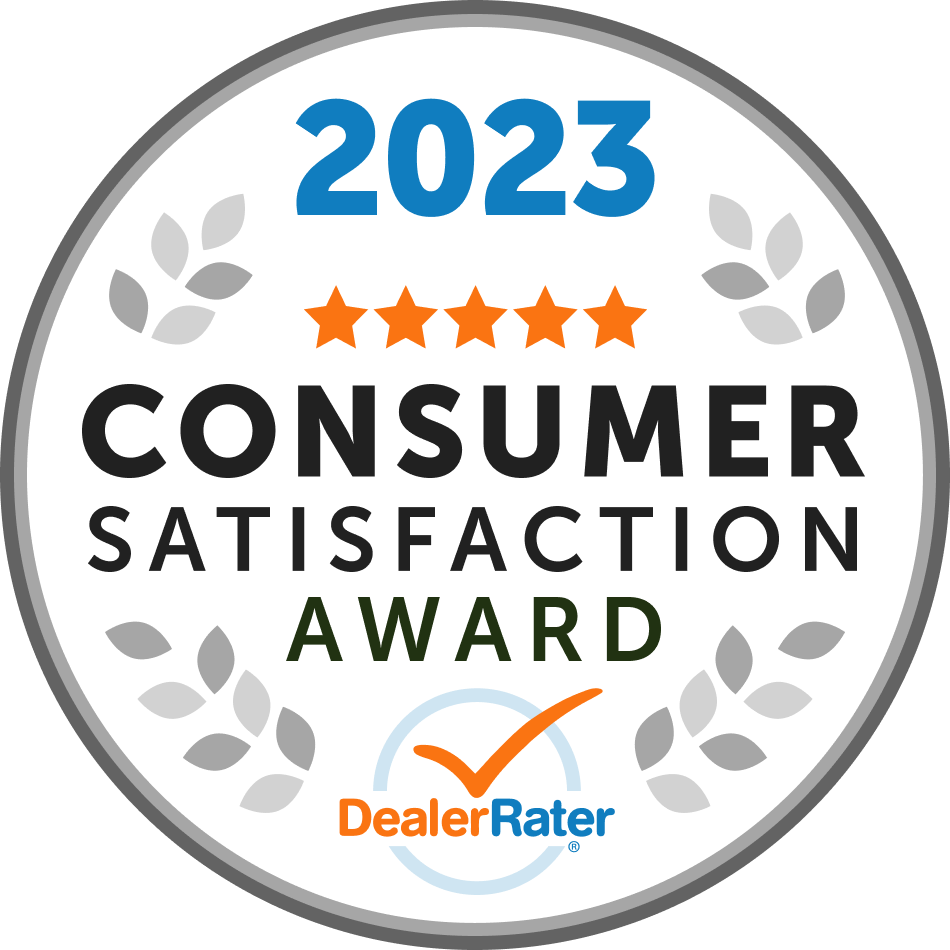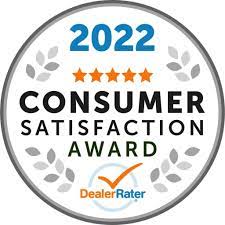Many people believe that a low credit score automatically means getting denied for a car loan or being stuck with impossibly high interest rates. That’s a common myth, and it keeps too many drivers from even trying. The truth is, many lenders and dealerships specialize in helping people in your exact situation. This guide cuts through the confusion and gives you a clear roadmap. We’ll explain what to expect, how to increase your approval odds, and where to find the best car loans for bad credit in Dallas, TX. You don’t have to settle. With the right information, you can find a fair deal that fits your budget and helps you rebuild your credit.
Key Takeaways
- Set yourself up for approval: You can significantly improve your chances by saving for a down payment, cleaning up your credit report, and getting pre-approved for financing before visiting a dealership.
- Look beyond the sticker price: A truly affordable car fits within your budget when you account for all expenses, including the monthly payment, insurance, fuel, and potential maintenance.
- Make your loan a credit-building tool: Every on-time payment is a positive mark on your credit report, and managing your loan responsibly is a direct path to improving your score for the future.
What Is a Bad Credit Car Loan?
Let's start by clearing the air: a "bad credit car loan" isn't a penalty. It's simply a type of financing designed for people whose credit history might have a few bumps. If your credit score is below 600, you might fall into this category. Life happens—a medical bill, a job loss, or a past mistake shouldn't keep you from getting the reliable car you need to get to work and live your life in the Dallas area.
Think of this loan as a specific tool built for your situation. Lenders who offer these loans look beyond just the three-digit score and consider other factors, like your income and job stability. While the terms might be different from a loan for someone with excellent credit, the goal is the same: to get you behind the wheel of a quality vehicle. It’s also an opportunity to start rebuilding your credit with consistent, on-time payments. At Auto Web Expo, we work with a network of lenders who specialize in helping drivers in exactly this situation.
What's Considered a "Bad" Credit Score?
The term "bad credit" can feel a little vague, so let's put some numbers to it. Generally, credit scores are broken down into ranges. According to most models, a "poor" credit score is anything from 300 to 579. A score in the "fair" range is typically between 580 and 669. If your score is in either of these brackets, you'll likely be looking at bad credit financing options. It’s helpful to check your credit score before you start shopping so you know exactly where you stand. Knowing your number takes the guesswork out of the process and helps you set realistic expectations.
Common Myths About Credit Scores
Shopping for a car with less-than-perfect credit can be stressful, and a lot of that stress comes from common myths. Many people believe that a bad credit loan automatically means dealing with unfair terms or impossibly high interest rates. While you should always read the fine print, reputable dealerships work with trusted lenders to find fair solutions. Another huge misconception is that you need a massive down payment to get approved. While a down payment certainly helps your case and lowers your monthly payment, many lenders can work with you even if you don't have a lot of cash saved up.
What to Expect for Interest Rates
It’s true that a lower credit score typically leads to a higher interest rate. Lenders see a lower score as a higher risk, and the interest rate reflects that. However, the rate you're offered isn't set in stone. It can vary based on the lender, the vehicle you choose, the loan term, and your down payment. Even a small improvement to your credit score before you apply can make a big difference, potentially saving you thousands over the life of the loan. The key is to view your first car loan as a stepping stone. By making timely payments, you can build your credit history and qualify for much better rates down the road.
What Paperwork Will You Need?
Walking into a dealership prepared is one of the best ways to make the car-buying process smooth and stress-free. When you're ready to apply for financing, having your documents in order shows lenders that you're organized and serious. It also speeds everything up. Before you head out, gather a few key items. You’ll almost always need a valid driver's license, proof of income (like recent pay stubs), and proof of residence (a recent utility bill works well). If you plan on trading in your current vehicle, bring the title and registration for it, too.
Where to Find a Car Loan in Dallas with Bad Credit
When your credit score isn't where you'd like it to be, the idea of securing a car loan can feel overwhelming. But don't let that stop you. Here in the Dallas-Fort Worth area, you have more options than you might think. From local credit unions to specialized dealership programs, there are plenty of paths to getting the keys to your next vehicle. The key is knowing where to look and how to approach each option. Let’s walk through the best places to find a car loan in Dallas, even with a challenging credit history.
Checking with Traditional Banks
Starting with your own bank can be a good first step, especially if you have a long-standing relationship with them. Having a checking or savings account might give you a slight edge, as they already have insight into your financial habits. However, it’s important to be realistic. Large, traditional banks often have stricter lending criteria, which can make it more difficult to get approved with a lower credit score. Don't be discouraged if they say no; it’s a common experience and simply means you need to explore other avenues that are better suited for your situation. Think of this as gathering information, not a final verdict.
Exploring Credit Unions
Credit unions are one of the best-kept secrets for car buyers with imperfect credit. Because they are non-profit and member-owned, they often offer more flexible lending terms and lower interest rates than big banks. Their main goal is to serve their members, not to maximize profits for shareholders. Many local institutions, like Resource One Credit Union, also provide free services to help you understand and improve your credit score. They invest in your financial health, making them a supportive partner in your car-buying process. If you live or work in the DFW area, joining a local credit union is definitely worth looking into.
Understanding "Buy Here, Pay Here" Dealerships
You've probably seen signs for "Buy Here, Pay Here" (BHPH) lots around Dallas. These dealerships are unique because they are both the car seller and the lender. As the name implies, you buy the car there and make your payments directly to them, cutting out the need for a third-party bank approval. This model can be a lifeline if you’ve been turned down elsewhere, as they specialize in in-house financing. While BHPH dealerships provide an accessible option, be sure to review the loan terms carefully, as interest rates can sometimes be higher than other lenders. It’s a trade-off for the convenience and higher approval rate.
Finding Lenders Online
The internet has made it much easier to shop for loans from the comfort of your home. Many online lenders specialize in working with borrowers who have bad credit, and their application processes are typically fast and straightforward. You can often get pre-approved quickly, which gives you a clear idea of your budget before you even start shopping for a car. Some platforms allow you to compare offers from multiple lenders at once, saving you time and effort. This approach puts you in control, allowing you to see your options laid out before making a commitment.
Dallas-Specific Financing Programs
Many dealerships right here in the Dallas area have finance departments that are experts at helping people in all kinds of credit situations. At Auto Web Expo, our finance team has built strong relationships with a wide network of lenders, including those who specialize in financing for buyers with credit challenges. Working directly with a dealership’s finance experts means you have a dedicated advocate on your side. We know the ins and outs of auto lending and can match you with the right financial institution for your specific circumstances. This personalized approach can make all the difference in securing a loan that fits your budget.
How to Increase Your Approval Odds
Even with a less-than-perfect credit score, you can take steps to strengthen your loan application. Lenders look at more than just your score; they want to see a full financial picture. By focusing on a few key areas, you can show them you're a reliable borrower and improve your chances of getting approved. Here’s how to put your best foot forward when you're ready to find your next vehicle in the Dallas area.
Review and Clean Up Your Credit Report
Before you start applying for loans, your first move should be to get a copy of your credit report. Go through it line by line to spot any errors, like accounts you don't recognize or payments marked late that were actually on time. Disputing these mistakes can give your score a nice bump. Beyond that, focus on what you can control. Lenders pay close attention to your debt-to-credit ratio, so paying down existing balances is a smart strategy. Consistently making on-time payments shows you’re a dependable borrower. Improving your credit score before you shop can help you qualify for better terms and save you thousands over the life of the loan.
Save for a Stronger Down Payment
A down payment is one of the most effective tools you have, especially with a challenging credit history. When you put more money down, you reduce the amount you need to borrow. To a lender, this lowers their risk, which can significantly improve your chances of approval. A larger down payment also means a smaller monthly payment and less interest paid over time, which is a win-win for your budget. While there’s no magic number, aiming for at least 10% of the car's price is a great goal. Even if you can't reach that, every bit helps show the lender you're serious and financially invested in the purchase.
Show Stable Income and Employment
While your credit score reflects your financial past, your income demonstrates your ability to handle future payments. Lenders need to see that you have a steady and reliable source of income to cover your monthly car payment. Before you apply, get your documents in order. This includes recent pay stubs, bank statements, and anything else that proves your employment history. Having been at the same job for a year or more is a big plus, as it signals stability. If you're self-employed or have irregular income, be ready to provide a couple of years of tax returns to paint a clear picture of your financial situation.
Consider a Cosigner
If you're worried about getting approved on your own, bringing on a cosigner might be the key. A cosigner is typically a family member or close friend with a strong credit history who agrees to share legal responsibility for the loan. They aren't expected to make payments, but they are obligated to take over if you're unable to. For a lender, a cosigner acts as a safety net, making them much more comfortable approving the loan. This can also help you secure a lower interest rate. Just be sure to have an honest conversation with your potential cosigner, as this is a major financial commitment for them, too.
Get Pre-Approved Before You Shop
Walking into a dealership with a pre-approved loan offer gives you a major advantage. When you get pre-approved, a lender has already reviewed your credit and finances and has given you a clear idea of how much you can borrow and at what interest rate. This lets you establish a realistic budget before you even start looking at cars. It also puts you in a stronger negotiating position. The conversation is no longer about whether you can get financing, but about getting the best price on the vehicle. You can apply for financing with us online to see where you stand, which saves time and lets you shop with the confidence of a cash buyer.
How to Choose the Right Car for Your Budget
Once you have a loan pre-approval, the fun part begins: shopping for your car. But sticking to your budget is about more than just the sticker price. Choosing the right vehicle means finding one that you love to drive and can comfortably afford for the long haul. This is your chance to make a smart financial decision that not only gets you on the road but also helps you build a stronger financial future. Let’s walk through how to pick the perfect car without stretching your finances too thin.
Find a Vehicle That Fits Your Budget
When you’re working to improve your credit, the smartest car choice is one that’s affordable, dependable, and fuel-efficient. Focusing on these qualities helps you stay comfortably within your budget, ensuring you can make your payments on time, every month. Each on-time payment is a positive step toward a better credit score. Think of your car as a tool for both transportation and credit-building. Look for models known for their reliability and low maintenance costs. At Auto Web Expo, we have a wide selection of high-quality, pre-owned vehicles that deliver luxury and performance without the brand-new price tag, making it easier to find a car that fits your financial goals.
Calculate the Total Cost of Ownership
The price you see on the window is just the beginning. To get a true picture of what you’ll spend, you need to calculate the total cost of ownership. This includes all the ongoing expenses that come with having a car: gas, insurance, regular maintenance like oil changes and tire rotations, and potential repairs. It’s also wise to factor in costs like parking and annual registration fees. Using an online loan calculator can help you see how different interest rates and loan terms will affect your monthly payment, allowing you to find a sweet spot that works for your budget.
Plan for Your Monthly Payment
Your monthly car payment is one of the most important figures to plan for. Since regular, on-time payments on your car loan can significantly contribute to improving your credit score over time, it’s crucial to set a payment amount you can confidently meet. Look at your monthly income and expenses to determine a realistic number before you even step onto the lot. This prevents you from falling in love with a car that will strain your finances later. By planning ahead, you turn your car payment from a simple bill into a powerful tool for building your credit history.
Don't Forget About Insurance Costs
Car insurance is a mandatory and significant expense that many buyers overlook until the last minute. Your driving record, credit history, and the type of car you choose all play a role in determining your premium. Luxury and sports cars often cost more to insure than a standard sedan or SUV. Before you finalize your decision on a vehicle, get a few insurance quotes for the specific models you’re considering. Factoring this cost into your overall budget from the start ensures there are no surprises and that your total monthly transportation expenses remain manageable.
How to Spot and Avoid Hidden Fees
When you’re finalizing your purchase, it’s important to be aware of additional costs that can pop up. While a down payment is a great way to lower your loan amount, you should always ask for an itemized list of all fees associated with the sale. These can include documentation fees ("doc fees"), dealer prep fees, and optional add-ons like extended warranties or GAP insurance. A transparent dealership will be happy to walk you through every line item. Don’t be afraid to ask questions about any charge you don’t understand. Knowing how to spot hidden fees helps you avoid unexpected costs and stay in control of your purchase.
Manage Your Car Loan and Build Your Credit
Getting approved for a car loan with less-than-perfect credit is a huge win, but it’s just the beginning. Think of your new loan as more than just a way to get behind the wheel of a great car; it’s your opportunity to build a stronger financial future. By managing your payments responsibly, you can actively improve your credit score, which opens doors to better interest rates and more financial freedom down the road. It’s all about turning this single loan into a powerful tool for your long-term success.
Use Tools to Track Your Payments
Consistency is everything when it comes to building credit. Your payment history is the single most important factor in your credit score, so making every car payment on time is non-negotiable. The easiest way to do this is to set up automatic payments through your lender’s portal or your bank. If you prefer a more hands-on approach, set calendar reminders a few days before the due date. You can also use budgeting apps to keep track of all your expenses in one place, ensuring your car payment is always a priority. These simple habits ensure you never miss a due date and can help steadily improve your credit over time.
How Your Car Loan Can Improve Your Credit
A car loan is a type of installment loan, which means you borrow a fixed amount and pay it back in regular installments. Successfully managing this type of debt shows lenders you can handle financial commitments responsibly. Each on-time payment adds a positive mark to your credit history. This, combined with having a mix of different credit types (like an installment loan and a credit card), can have a significant positive impact. A higher credit score is your key to securing better financing options with lower interest rates on future loans, whether it’s for another car, a house, or anything else.
Know When to Consider Refinancing
When you first take out a bad credit car loan, your interest rate might be higher than you’d like. But that rate isn’t set in stone forever. After making 12 to 18 months of consistent, on-time payments, your credit score will likely have improved. At that point, it’s a great idea to look into refinancing your auto loan. Refinancing means taking out a new loan with better terms to pay off the old one. This could help you secure a lower interest rate, which would reduce your monthly payment and save you a lot of money over the life of the loan.
The Benefits of Paying Off Your Loan Early
If your budget allows, consider paying a little extra toward your car loan each month. Even an additional $25 or $50 can make a big difference. Paying more than the minimum helps you pay off the principal balance faster, which means you’ll pay less in total interest. It also helps lower your debt-to-income ratio—a key metric lenders use to evaluate your financial health. Before you start making extra payments, just be sure to check your loan agreement to confirm there are no prepayment penalties. Most auto loans don’t have them, but it’s always smart to double-check.
Set Yourself Up for Long-Term Financial Health
Treat your car loan as a stepping stone. The good habits you build now—making timely payments, monitoring your credit, and paying down debt—will serve you for years to come. Improving your credit score isn’t just about getting a better car loan next time; it’s about creating more stability and opportunity in your entire financial life. By managing this loan well, you’re not just paying for a car; you’re investing in yourself and setting the stage for a future where you are in complete control of your finances.
Related Articles
Frequently Asked Questions
What's the minimum credit score needed to get a car loan? There isn't a single magic number that guarantees approval. While scores below 600 generally fall into the "bad credit" category, lenders look at your entire financial situation. They consider factors like your income stability, your debt-to-income ratio, and the size of your down payment. A steady job and a reasonable down payment can often make a stronger case than your credit score alone.
Will checking my financing options hurt my credit score? This is a common concern, and it’s smart to be mindful. When you formally apply for a loan, it results in a "hard inquiry" on your credit report, which can temporarily dip your score by a few points. However, credit scoring models understand that people shop around for the best rates. Multiple auto loan inquiries made within a short window (usually 14-45 days) are typically treated as a single event, minimizing the impact on your score.
How much of a down payment is actually required? While some lenders may approve a loan with no money down, providing a down payment is one of the best ways to improve your approval odds and loan terms. There's no strict rule, but putting money down reduces the amount you need to borrow. This lowers the lender's risk, which can help you secure a better interest rate and a more manageable monthly payment. Even a small down payment shows you're invested in the purchase.
Can I still get approved if I have a new job or am self-employed? Yes, you absolutely can. Lenders primarily want to see proof of stable and sufficient income to cover the loan payments. If you've just started a new job, a formal offer letter or your first pay stub can often work. If you're self-employed, you can demonstrate your income using recent bank statements or the last couple of years of tax returns. The key is providing clear documentation of your earnings.
Is it better to get financing through the dealership or find my own loan first? Both are good strategies. Getting a pre-approval from your bank or a credit union is a great way to set a budget and have a baseline offer to compare. However, a dealership's finance department has relationships with a wide network of lenders, including those who specialize in working with buyers who have credit challenges. They can often shop your application around to find the most competitive rate, saving you time and potentially finding you a better deal.



